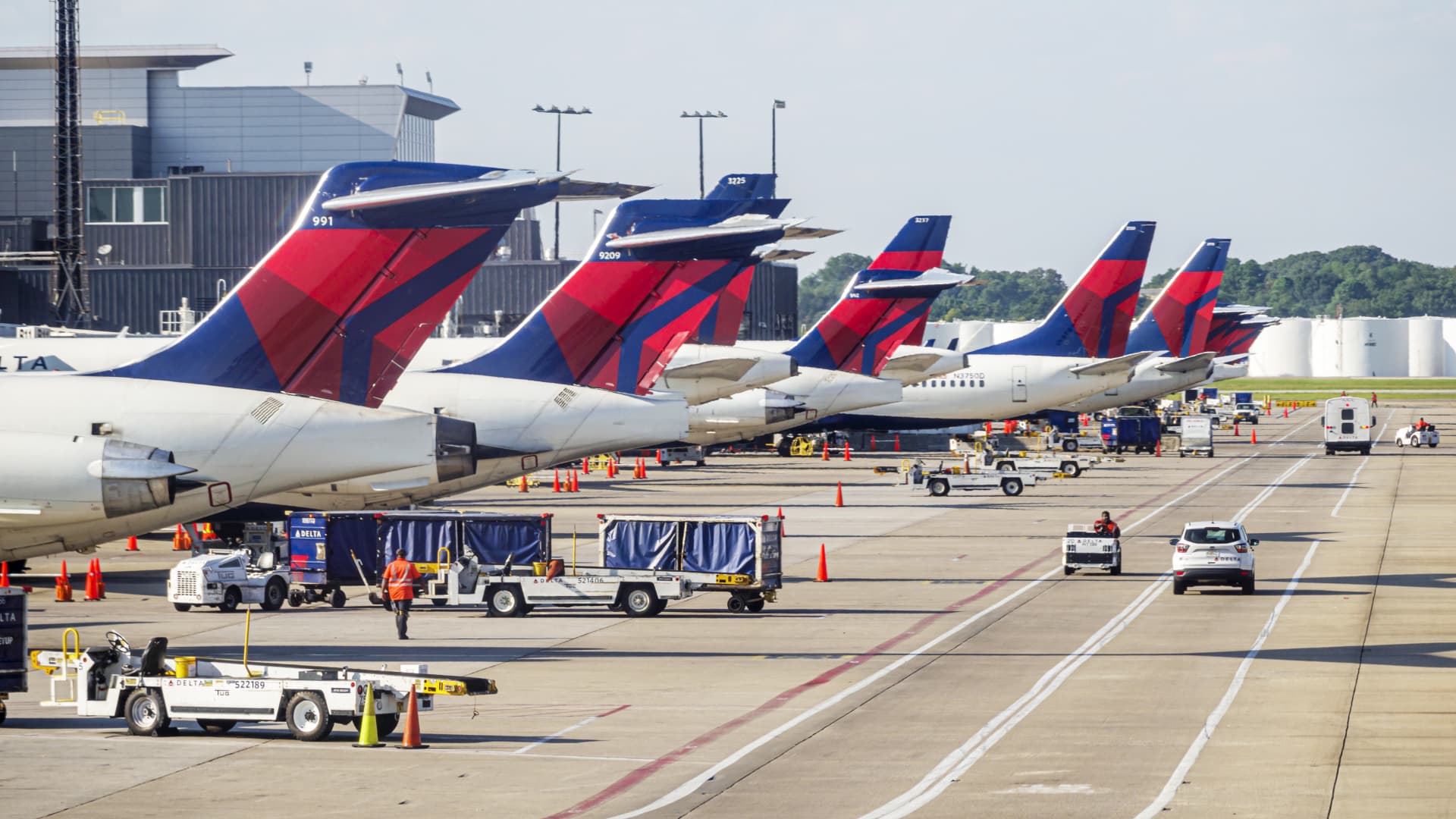The spike in oil prices is weighing on airline stocks, and there is still time to for traders to take advantage of that relationship through options trades, according to Barclays. Futures for U.S. benchmark West Texas Intermediate crude hit the highest level of the year on Tuesday, and jet fuel costs have also climbed. Barclays strategist Stefano Pascale said in a note to clients on Tuesday that the price of fuel is one reason for the struggle of the the U.S. Global Jets ETF (JETS) , which has fallen 17% since its recent high about two months ago. “Airlines’ rising fuel cost on the back of the oil rally and softening demand caused JETS to underperform by 20% over the past 6m. Such underperformance has been worse only 10% of the time in the past 25yrs,” the Barclays note said. JETS 6M mountain Airline stocks have underperformed, as shown by the JETS ETF. Further, there is a chance that the bad news of the higher fuel costs has not fully been baked in. Several airlines, including Delta Air Lines , are scheduled to present at a Morgan Stanley conference later this week and could potentially give updated guidance that shows fuel costs are chipping away at earnings. “Jet fuel prices have increased nearly 20% since mid-July (when many carriers provided initial 3Q23 guidance), which will likely lead to lower near-term earnings and margins across the group,” the Barclays note said. The options market does not appear to have priced in these risks, Pascale said, so Barclays recommended two short-term trades. The first is a put spread on the JETS ETF, which would expire in October. A put spread involves buying and selling put options — which gives the holder the right to sell the underlying asset at a pre-determined strike price — that expire on the same date. To bet that rising fuel costs would further hurt airline stocks, the trader could go long a put option at one strike price and go short a put option at a slightly lower price. This structure would lower the cost of the trade, though it would also limit the upside if the JETS ETF falls below the lower strike price. The Barclays note recommended using $18 and $17 as the strike prices. A more targeted strategy would be a straddle on Delta that expires at the end of this week. A straddle involves buying a put and a call option — which gives the holder the right buy an underlying asset — with the same strike price and expiration date. A straddle is often more expensive than a spread, since it involves buying two different options, but it serves as a bet on volatility in either direction. And the market for Delta options seems curiously priced, Pascale said, implying a move of less than 1% after this conference. “In 2020 and 2022 Delta Air Lines (DAL), moved -3.3% (0.79 st. dev.) and 2.9% (1.05 st. dev.), respectively” after the same event, Pascale said. Barclays recommended using a $41 strike price for the straddle. — CNBC’s Michael Bloom contributed reporting.
Oil prices are pressuring airline stocks. These options trades can take advantage, Barclays says
















